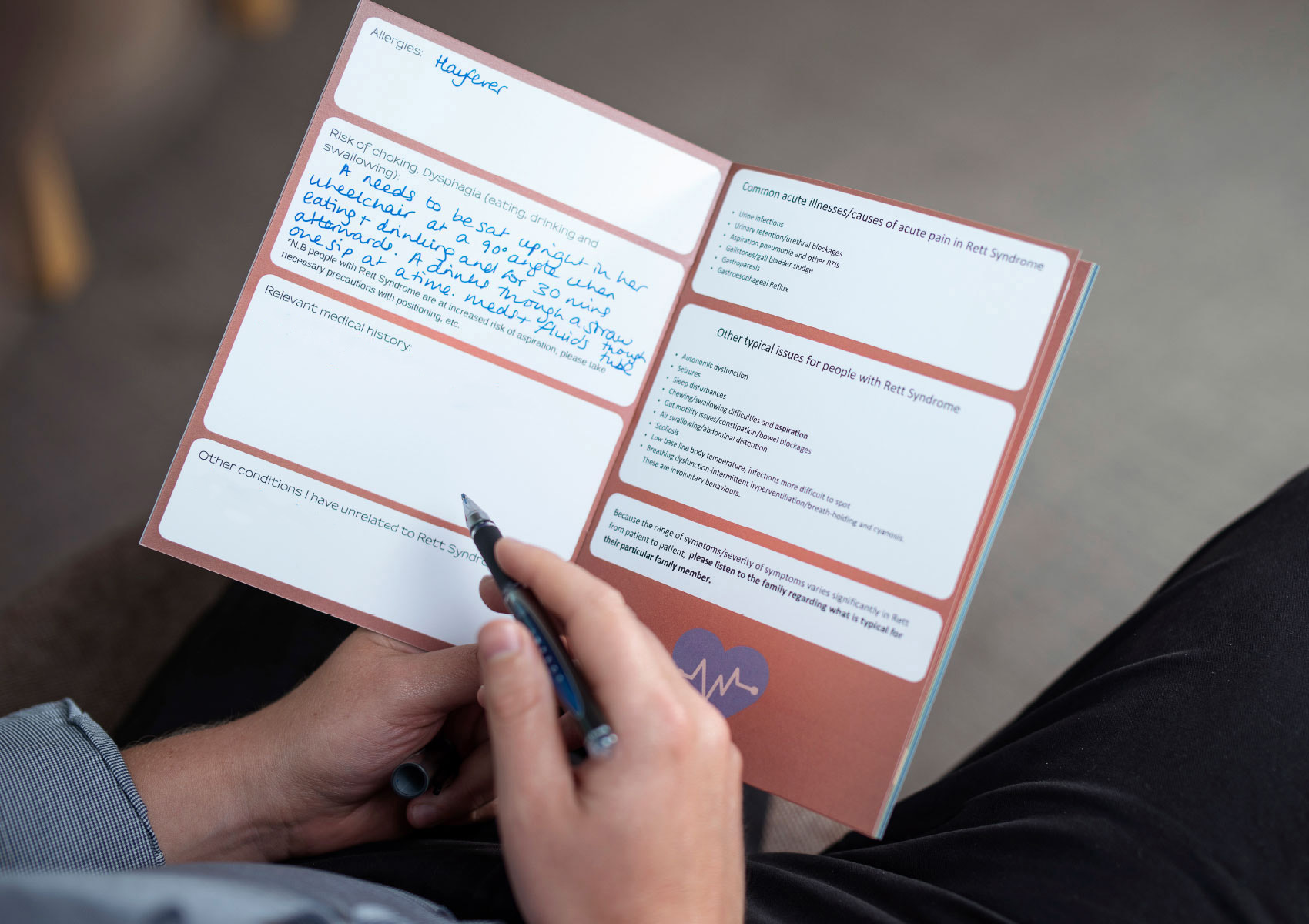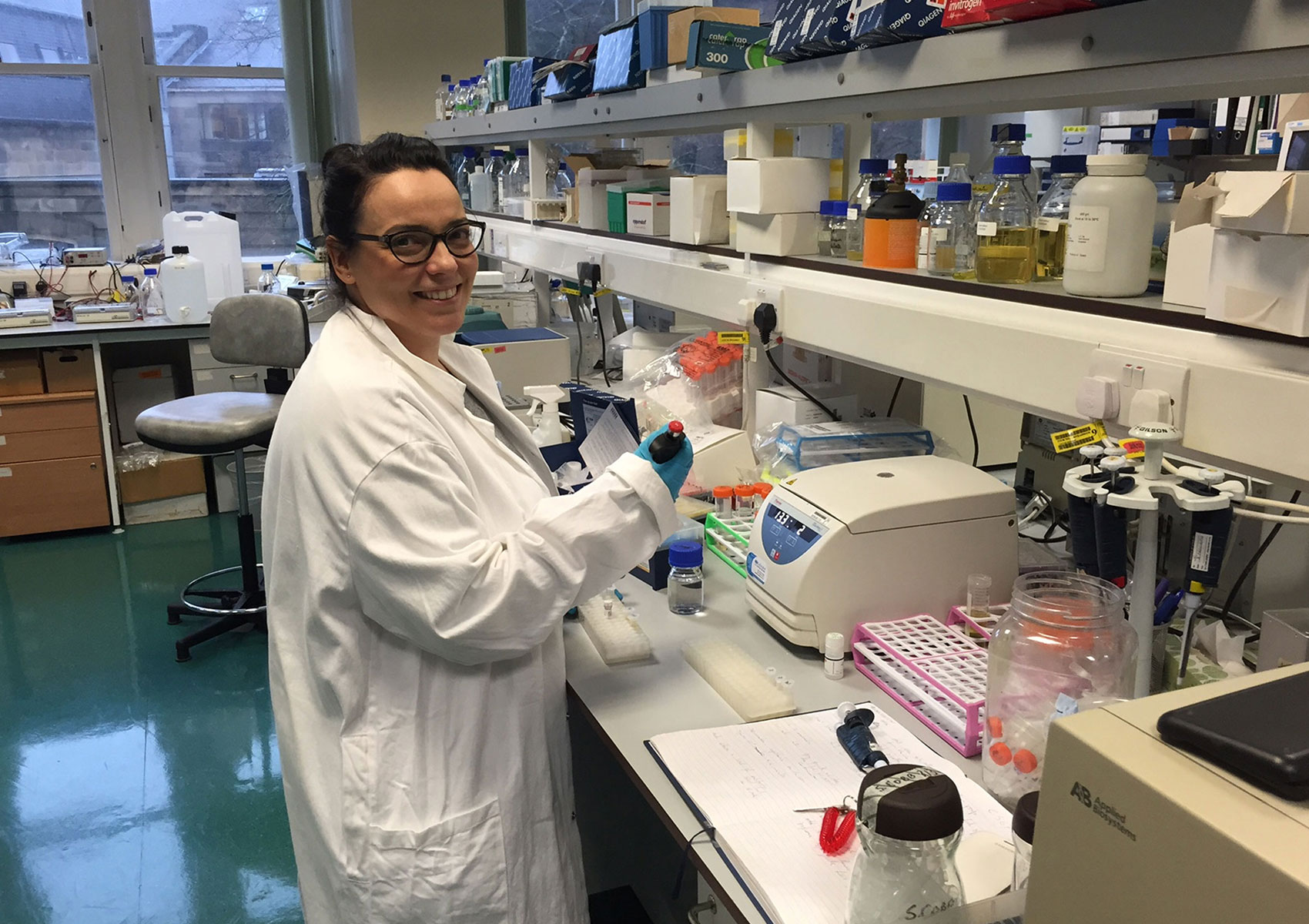Below is some information which can help you keep your child, or adult, with Rett Syndrome safe and healthy until better treatments, and our cure, become available. This information includes links to the most up to date guidance and services which can help you manage specific symptoms, such as constipation and sleep difficulties.
The most important thing to remember is that there is hope. We know the gene that causes Rett Syndrome and it’s a single one. Rett Syndrome has already been reversed in the lab. We’re not raising money for something abstract, we’re working to bring treatments and a cure for Rett Syndrome home.

The Rett Disorders Alliance UK (Reverse Rett, Rett UK and FOXG1) are delighted to bring you the Rett Syndrome Health Checklist. The Health Checklist provides information to help with symptom identification and management, including suggestions for drugs which may help and those which may cause difficulties for people with Rett Syndrome. There are also links to relevant research papers, case studies and best practice guidance.

Hospital visits can be an ordeal for children and adults with Rett Syndrome and their families. From the basics like quickly informing treating clinicians how best to take blood, to more complex information like flagging up potential drug interactions, we hope the Reverse Rett hospital passport will help.

This is an exciting time in Rett Syndrome clinical research. Clinical trials are underway to treat key symptoms of Rett Syndrome and improve quality of life.